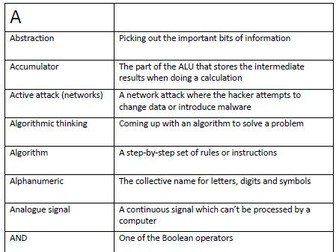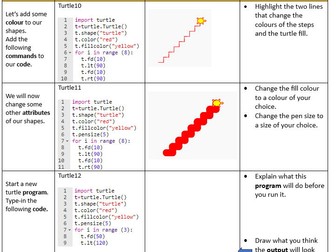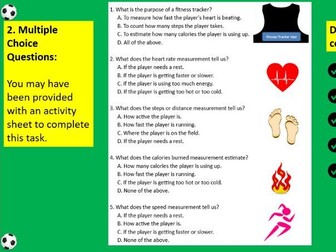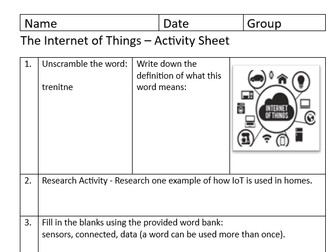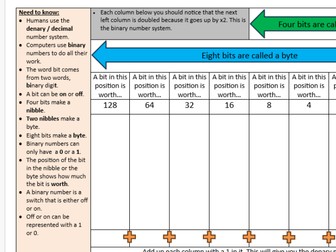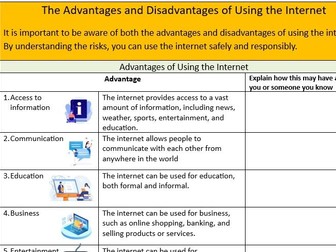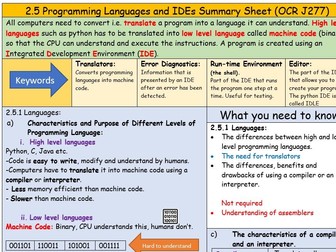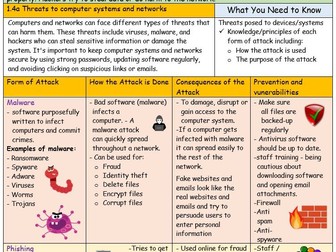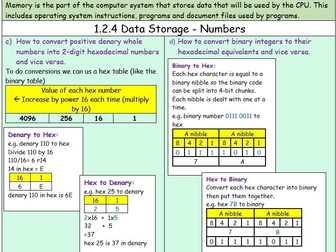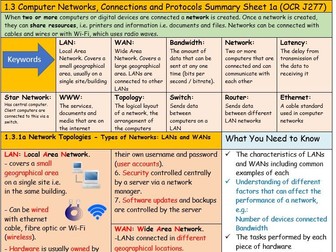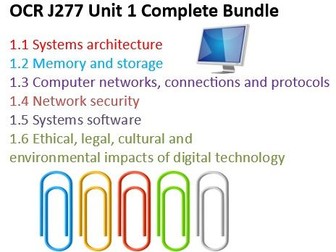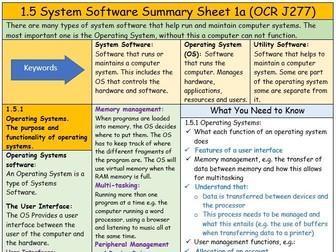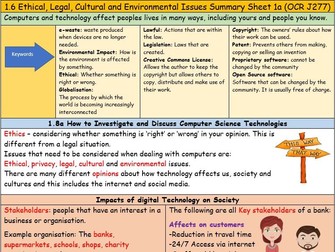
1.1 System Architecture Summary Sheet / Knowledge Organiser - CPU (with quick fire questions)
** System Architecture Summary Sheet (with quick fire questions)**
A sheet that concisely summarises System Architecture (CPU).
Aimed specifically at GCSE computer studies but can be used at any keystage.
Comes with a set of 20 quick fire questions based on the summary sheet.
Specific to OCR GCSE Computer Studies 9-1 but applicable to other exam boards.
A useful aid the help with Exam question practice
Includes:
The purpose of the CPU
Von Neumann Architecture
Common CPU Components and their Function
The Fetch - Decode - Execute Cycle
Common Characteristics of the CPU and their Performance
Embedded Systems
